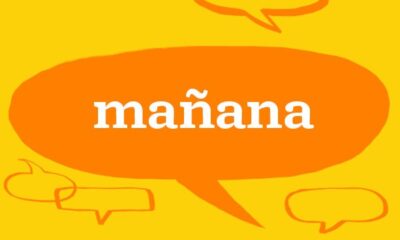Whether you’re visiting a Spanish-speaking country or even planning to live there, you’ll want to be able to chat to people and get to know them better. The nuts and bolts of conversations revolve around common courtesies.
As in English, in Spanish there are several ways you can ask someone how they are, and a variety of ways to reply. Among friends, one of the most common things to say is ¿qué tal? or ¿cómo estás? (how are you?) or ¿cómo te va? (how’s it going?). In a more formal situation, it’s best to use the polite form of the verb, so ¿cómo está? (how are you?).
When it comes to replies, there are, of course, a multitude of things you can say. We’re only going to cover a handful of them here to get you started. Assuming you’re well, the most straightforward reply to the question how are you? would be bien (fine) or even ¡muy bien! (great!). Other less positive replies could be vaya (so-so), regular (not bad), vamos tirando (getting by).
To get the conversation going, you could flesh out your questions and answers a little.
¿Qué tal? – Bien, ¿y tú?
How are you? – Fine, and you?
¿Cómo está, señora? – Bien, gracias, ¿y usted? [formal]
How are you? – Fine thanks, and you?
¡Hola! ¿Cómo te va? – Regular, ¿y a tí?
Hello! How’s it going? – Not bad. And you?
In any language, it’s good manners to say please and thank you. The most common way to say please in Spanish is por favor.
Thanks, as seen in the examples above, is translated by gracias. To be more effusive, you could say muchas gracias (many thanks or thank you very much). You might also hear te lo agradezco, or the formal form se lo agradezco, which means I am grateful.
The response to gracias that you’re most likely to use or hear is de nada (you’re welcome), or you could say, if appropriate, a tí (thank you). For greater emphasis you can use no hay de qué (don’t mention it).
Dos kilos de naranjas, por favor.
Two kilos of oranges, please.
Gracias por el regalo. – ¡De nada!
Thank you for the present. – You’re welcome!
Muchas gracias, Ana. – ¡No hay de qué!
Thanks very much, Ana. – Don’t mention it!
Don’t forget to come back for the next blog post to help you continue with the conversation!



